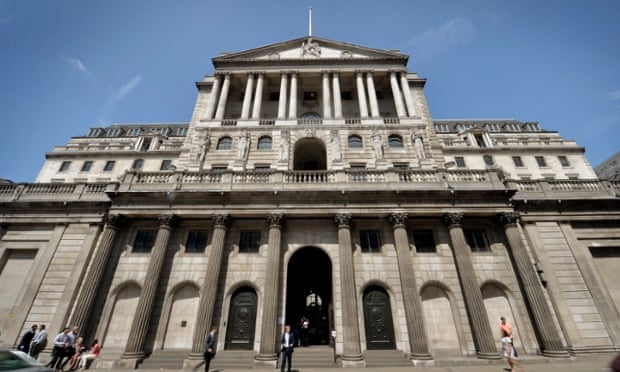Insurance companies could suffer a “huge hit” if their investments in fossil fuel companies are rendered worthless by action on climate change, the Bank of England warned on Tuesday.
“One live risk right now is of insurers investing in assets that could be left ‘stranded’ by policy changes which limit the use of fossil fuels,” said Paul Fisher, deputy head of the bank’s prudential regulation authority (PRA) that supervises banks and insurers and is tasked with avoiding systemic risks to the economy.
“As the world increasingly limits carbon emissions, and moves to alternative energy sources, investments in fossil fuels – a growing financial market in recent decades – may take a huge hit,” Fisher told an insurance conference. He said there “are already a few specific examples of this having happened”, but did not name them, and added that it was clear his concerns had yet to “permeate” the sector.
The new warning from one of the world’s key central banks follows a caution from its head Mark Carney that the “vast majority of [fossil fuel] reserves are unburnable” if climate change is to be limited to 2C, as pledged by the world’s governments. The bank will deliver a report to government on the financial risk posed by a “carbon bubble” later in 2015.
“It is encouraging to see this major central bank seeing the need to move with the times and understand its role in dealing with one of the major challenges facing our economies today: climate change,” said James Leaton, research director at the Carbon Tracker Initiative. “We hope to see other financial regulators around the world responding in a similar fashion and collaborating on this issue.”
A series of analyses have shown that most existing reserves of fossil fuels cannot be burned without blowing the safe budget for carbon emissions. A study in January indicated that 80% of coal reserves, half of gas and a third of oil would have to stay in the ground. But companies spent $670bn (£436bn) in 2013 alone searching for more fossil fuels, investments that could be worthless if action on global warming slashes allowed emissions.
Other senior financial figures have also warned of the risks to fossil fuel investments. Former US Treasury secretary Hank Paulson said in 2014: “When the credit bubble burst in 2008, the damage was devastating. We’re making the same mistake today with climate change. We’re staring down a climate bubble that poses enormous risks to both our environment and economy.”
World Bank president Jim Yong Kim said: “Sooner rather than later, financial regulators must address the systemic risk associated with carbon-intensive activities in their economies.”
Fisher told the Economist conference on Tuesday: “Climate change impacts insurers on both sides of their balance sheets. Insurers may be impacted by increased claims. But it appears that the asset side may also give rise to unexpected risks.” He said the insurance industry was already taking steps to stay ahead of the climate curve on the liability side, but were not doing so in their role as long term investors.”
Fisher said the bank’s approach to addressing systemic economic risks could be changed by its analysis of the carbon bubble. A recent discussion paper from the bank stated: “Fundamental changes in the environment could affect economic and financial stability and the safety and soundness of financial firms, with clear potential implications for central banks.”
“Environmental risks, including climate change and climate policy, have already impacted a range of sectors and if anything this will grow in significance,” said Ben Caldecott, director of the stranded assets programme at the University of Oxford. “Assets from power stations to mortgages have exposure and the challenge is to figure out how much exposure, when this could be a problem, and to identify the best ways to manage such risks.”

